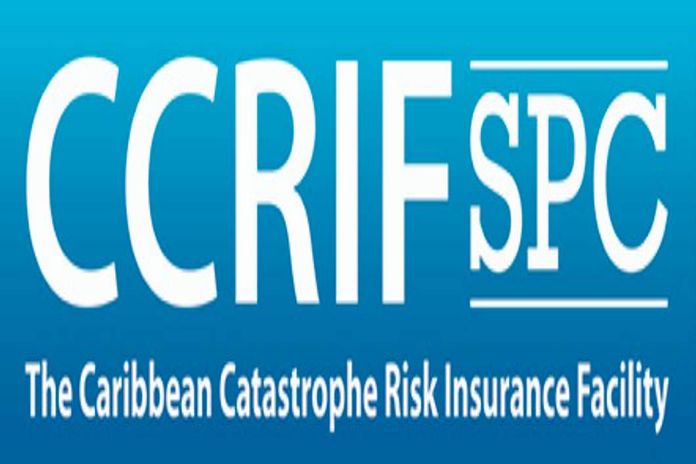GRAND CAYMAN, Cayman Islands – The Caribbean Catastrophe Risk Insurance Facility (CCRIF) SPC made a payout on July 1, 2024, of US$6,376,184 to the government of Guatemala on its excess rainfall policy following heavy rains that occurred during June 13-19.
CCRIF expresses sympathy with the government and people of Guatemala for the loss of life and impacts on communities and infrastructure caused by this event. CCRIF trusts that the payout will provide a measure of financial support to assist the Government in its most urgent relief efforts. As CCRIF makes this payout, it is actively monitoring Tropical Cyclone Beryl, which is affecting several of our members in the Caribbean.
This payout represents the government of Guatemala’s full payout under its excess rainfall (XSR) policy, meaning that the policy has reached its coverage limit. Due to the increasing frequency, intensity, and unpredictability of climate-related hazards, CCRIF has been developing policy features (or endorsements) to enhance its main parametric insurance policies. One such feature is the Reinstatement of Sum Insured Cover (RSIC), which was introduced by CCRIF for tropical cyclone and earthquake policies as far back as 2017 when the Facility celebrated its 10th anniversary. CCRIF made the RSIC available for XSR policies for the first time for the 2024/25 policy year.
The RSIC allows a member government’s policy to be reinstated if it reaches the coverage limit before the end of the policy year. Guatemala purchased the RSIC under its XSR policy – at a cost that is a small fraction of the main policy premium. This means that, following the triggering of the policy to its limit, the XSR policy was immediately reinstated to the full coverage limit of US$6.38 million.
Therefore, Guatemala will continue to be financially protected against excess rainfall events until the end of the policy year on May 31, 2025, or until the coverage limit of the policy is reached again as a result of one or more rainfall events prior to that date.
CCRIF members recently renewed their insurance policies for the 2024/25 policy year, which began on June 1st. CCRIF CEO, Isaac Anthony, stated:
“For 2024/25, total coverage has increased by 10 percent compared with last year. This demonstrates our members’ commitment to investing in financial protection against natural hazards.”
CCRIF is the Caribbean and Central America’s development insurance company and is also a risk pool. By operating as a risk pool, CCRIF offers its members several benefits. The risk pooling mechanism allows CCRIF to offer parametric insurance policies with premiums that are 35-50 percent lower than if members individually tried to access this type of coverage from the reinsurance markets. These lower costs of coverage are possible as CCRIF can pool diverse exposures, retain some risk and transfer excess risk to the capital and reinsurance markets. The risk pool has also enabled CCRIF to achieve financial and operational efficiencies, which enables members to benefit from relatively good and highly competitive premium prices, as well as premium discounts.
As CCRIF continues to “push the innovation needle”, the Facility is using its base models for tropical cyclones and excess rainfall to develop new multi-peril sectoral products. Some of these products include the COAST fisheries product (coverage for wind, rainfall, storm surge and wave height), a product for Caribbean electric utilities for their transmission and distribution systems and a product for water utilities (for wind and rainfall perils).
In 2023, CCRIF introduced three additional policy endorsements that provide protection to members against the vagaries of climate change. The Wet Season Trigger endorsement can provide a payout for rainfall incidents that occur when the soil is already saturated from previous rainfall, and therefore captures the heightened risk of flooding and landslides under these conditions. The Localized Damage Index (LDI) and Localized Event Trigger (LET) endorsements provide coverage for tropical cyclones and rainfall events, respectively, where losses are highly concentrated in small sections of a country. The Government of Guatemala purchased the WST and LET endorsements for its XSR policy and therefore will be covered for these conditions for the remainder of the year under its reinstated policy.
CCRIF’s parametric insurance is cited as a strategy to help countries better manage growing damage and loss due to climate change. CCRIF’s payouts within 14 days of an event are key to enable countries to recover faster and to help them build back stronger and reduce future impacts of disasters. Parametric insurance has the potential to mitigate the catastrophic impact of disasters, enable a timely recovery, and contribute to sustainable, climate-resilient development. Parametric insurance addresses more than physical damage to assets and infrastructure. It also provides solutions for economic exposure.





